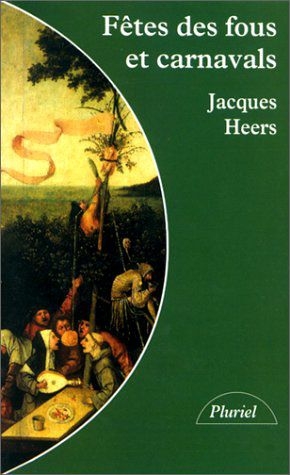 De tout temps, les carnavals et autres fêtes des fous ont compté, parmi leurs fonctions notoires, celle de dire leur fait à ceux qui le méritaient. Magistrats corrompus, seigneurs impitoyables, clercs aux mœurs dissolues… en prenaient pour leur grade. Il y avait là un fond très moral: les satires, même de mauvais ton, donnaient une leçon d’humilité et de sagesse populaires à ceux qui en faisaient les frais, tout en consolant leurs acteurs et spectateurs d’être parfois si mal dirigés. Mais un autre rôle, autrement important que celui d’une soupape de sûreté, peut être mis en évidence: celui de ciment de la vie commune, fût-ce en toute légèreté et sans avoir l’air d’y toucher. Un projet de recherche en cours à l’Université d’Utrecht vise à éclairer sous cet angle la culture festive du Moyen Age finissant et la production littéraire qui lui était liée [1].
De tout temps, les carnavals et autres fêtes des fous ont compté, parmi leurs fonctions notoires, celle de dire leur fait à ceux qui le méritaient. Magistrats corrompus, seigneurs impitoyables, clercs aux mœurs dissolues… en prenaient pour leur grade. Il y avait là un fond très moral: les satires, même de mauvais ton, donnaient une leçon d’humilité et de sagesse populaires à ceux qui en faisaient les frais, tout en consolant leurs acteurs et spectateurs d’être parfois si mal dirigés. Mais un autre rôle, autrement important que celui d’une soupape de sûreté, peut être mis en évidence: celui de ciment de la vie commune, fût-ce en toute légèreté et sans avoir l’air d’y toucher. Un projet de recherche en cours à l’Université d’Utrecht vise à éclairer sous cet angle la culture festive du Moyen Age finissant et la production littéraire qui lui était liée [1].
Issu du domaine francophone, le Placcaet vande Vasten, parodie d’un mandement épiscopal de carême, témoigne bien des raisons d’être multiples de ce qui peut être perçu de prime abord comme un simple amusement, en un temps où l’irrévérence envers les autorités est aussi naturelle qu’elle sera périlleuse face aux Big Brothers des XXè et XXIè siècles. Dans sa langue originale ou dans sa version en moyen néerlandais, le texte a circulé amplement dans nos anciens Pays-Bas, bien avant le XVIè siècle, époque des plus anciens manuscrits bruxellois, gantois ou courtraisien ainsi que des imprimés (almanachs, feuilles volantes) par lesquels il nous est connu. Conçu pour qu’on y reconnaisse, y compris à la lecture publique, les instructions de l’évêque relatives aux restrictions alimentaires, à la prière et à d’autres activités propres aux quarante jours de pénitence avant Pâques, le Placcaet prolonge le thème très récurrent du combat métaphorique entre le carnaval et le jeûne. Le carême y est personnifié par les nourritures autorisées: on l’appelle, par exemple, « Coninck der zeevisscherije » (« Roi de la pêche en mer » ) ou encore « Grave van caerpels, snouken » (« Comte des carpes et des brochets » ). Il a pour greffier « Wouter Ijdelbuijck, Vrijheere van magher maeltijt en Co » (« Wouter Ventrevide, baron du repas maigre et Cie » ). De son domaine, appelé « de stadt van gooten hongher » (« la ville de grand faim » ), les mets interdits et les contrevenants que sont, par exemple, « Nichtien selden nuchter » (« Petite Cousine rarement à jeun » ) ou « Jan den smul coningh » (« Jean le roi du régal » ), sont impitoyablement bannis jusqu’à Pâques.
Pourtant, tout n’est pas que symboles passe-partout dans ce pastiche du discours pastoral. On peut y déceler des allusions à des personnes existantes au sein de la communauté, encouragées à continuer par leurs facéties à mettre temporairement le monde à l’envers (mundus inversus) et rendre la ripaille plus méritoire que la mortification. Par ce moyen, écrivent les chercheuses, « le Placcaet œuvre à renforcer l’identité de groupe et la cohésion sociale » . C’est notamment le cas pour le manuscrit conservé à la bibliothèque de l’Université de Gand, connexe d’autres textes carnavalesques, qui se caractérise en outre par l’emploi de mots et d’expression typiques du parler local. Nombre de chansons déploient des thèmes identiques, tel le Liedt op den vasten, connu par une feuille imprimée du XVIIIè siècle conservée aux Archives de la Ville d’Audenarde, où le « Joncker Swijnaert » (« Gentilhomme Grains » – il s’agit des grains pour cochons), qui distribue jambon, lard et saucisses, est loué bien plus que le maigrichon « Vasten Graef » (« Comte Carême » )… d’autant que le poisson coûte trop cher.
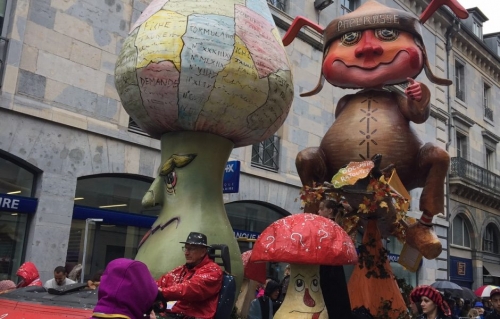
Carnaval 2019 à Besançon, ville qui, par cette fête populaire et immémoriale, renoue avec son glorieux passé impérial, habsbourgeois, baroque et espagnol, profondément mutilé par la conquête absolutiste du 17ème et par le fatras insipide et cruel de la "république". Une bonne nouvelle (ndlr).
Hors du temps censé s’achever après le Mardi Gras, d’autres festivités offrent l’occasion de divertir la collectivité tout en la soudant. L’Antwerps Liedboek, plus vieux recueil imprimé de chants profanes des Pays-Bas (1544), en porte les traces. Très populaire, réimprimé au moins quatre fois, il contient notamment (lied 17) les paroles d’un air à danser intitulé « Coppelt aen een, den nacht is lanck » (« Joignons nos bras, la nuit est longue » ). Si la parodie est aussi présente – on s’y moque de ceux qui ne participent pas –, d’autres mobiles émergent au fil de ce texte représentatif du genre. L’emploi du pronom personnel « nous » et la répétition de passages à reprendre en chœur apparaissent comme autant de manifestations d’une visée intégrative, sans laquelle nombre d’allusions, de références, de jeux de mots… seraient vides de sens ou inintelligibles. Des personnages ou des localités sont désignés nommément. Les habitants de Dixmude sont tournés en dérision, ce qui leur arrive fréquemment au cours des zottenfeesten. Si des gens, même pauvres, sont présentés comme dépensant sans compter pour profiter de la vie, ils peuvent aussi payer à crédit ou espérer que « thooft van Malen salt al betalen » (« le président van Malen payera tout » ). Une strophe qui donne à penser que le « nous » est ici celui de membres d’une gilde (terme utilisé à la fin), d’une confrérie ou d’une société bibitive, nombreuses à l’époque.
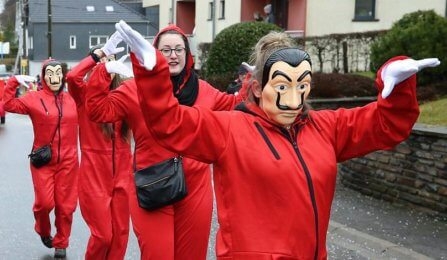
Un certain théâtre ludique, mettant en scène des thèmes sociaux ou de la vie quotidienne, peut lui aussi contribuer à unifier la population par le rire. Cela va de la compétition remportée par le meilleur imitateur d’un homme ivre assenant des vérités sur la vie (à Arras en 1431) à la parade humoristique où sont ridiculisés, par des scènes jouées sur des chariots, les hommes battus par leur femme à coups de vaisselle (à Lyon, seconde moitié du XVIè siècle). Les mêmes railleries, par l’écrit notamment, passent allègrement d’une région à l’autre. La charité n’y trouve pas toujours son compte, mais c’est parfois le prix de l’harmonie…
P.V.
[1] Katell LAVÉANT, Cécile de MORRÉE & Rozanne VERSENDAAL, « Spot en spel: de vrolijke feestcultuur van de Late Middeleeuwen » , dans Madoc. Tijdschrift over de Middeleeuwen, jaargang 31, n° 3, 2017, pp. 171-179.
https://www.verloren.nl/tijdschriften/madoc, Drift 6, 3512 BS Utrecht, Nederland.



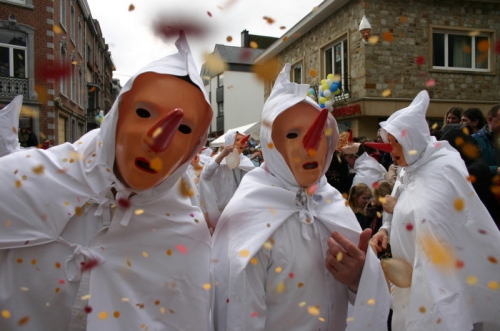
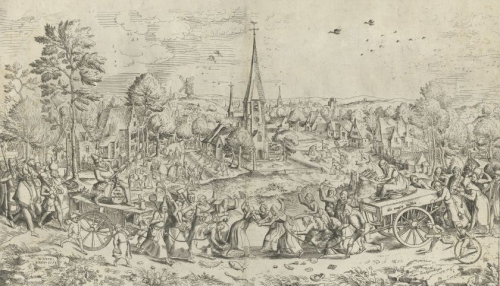

 del.icio.us
del.icio.us
 Digg
Digg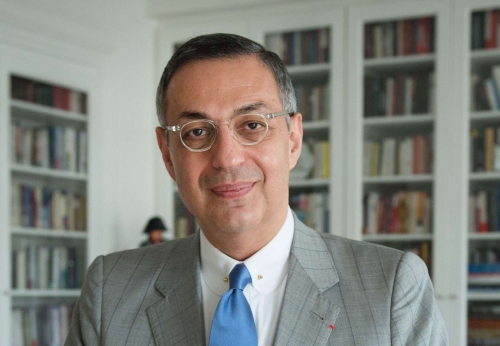

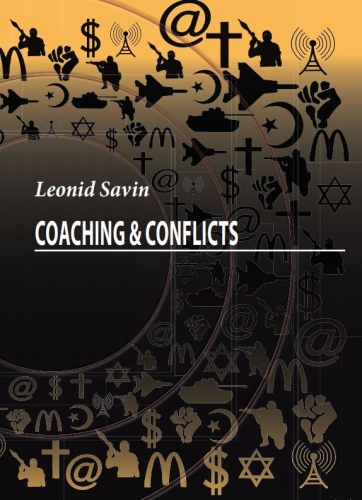 Coaching & conflicts deals with the theory concerning the “new art of war”, which is also the title of the Italian edition [1]: not only information and disinformation as they are generally understood but also, among other things, the set of methods by which a country can be affected economically and socially through the manipulation of its economy on international markets, so as to favor a change of government (or “regime”, just to use a word that makes so much bad anti-demokrats...). From these manipulations to the sadly known colored revolutions, perhaps followed by an external military intervention, the step may not be really immediate but still remains tragic: Libya docet, the Latins would say, and so also Syria even if right against the lions of Damascus the mechanism has jammed, showing its inevitable limits.
Coaching & conflicts deals with the theory concerning the “new art of war”, which is also the title of the Italian edition [1]: not only information and disinformation as they are generally understood but also, among other things, the set of methods by which a country can be affected economically and socially through the manipulation of its economy on international markets, so as to favor a change of government (or “regime”, just to use a word that makes so much bad anti-demokrats...). From these manipulations to the sadly known colored revolutions, perhaps followed by an external military intervention, the step may not be really immediate but still remains tragic: Libya docet, the Latins would say, and so also Syria even if right against the lions of Damascus the mechanism has jammed, showing its inevitable limits.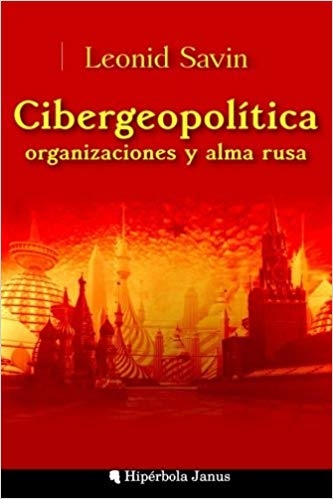 Q) Why did you want to publish Leonid Savin's essay?
Q) Why did you want to publish Leonid Savin's essay?
